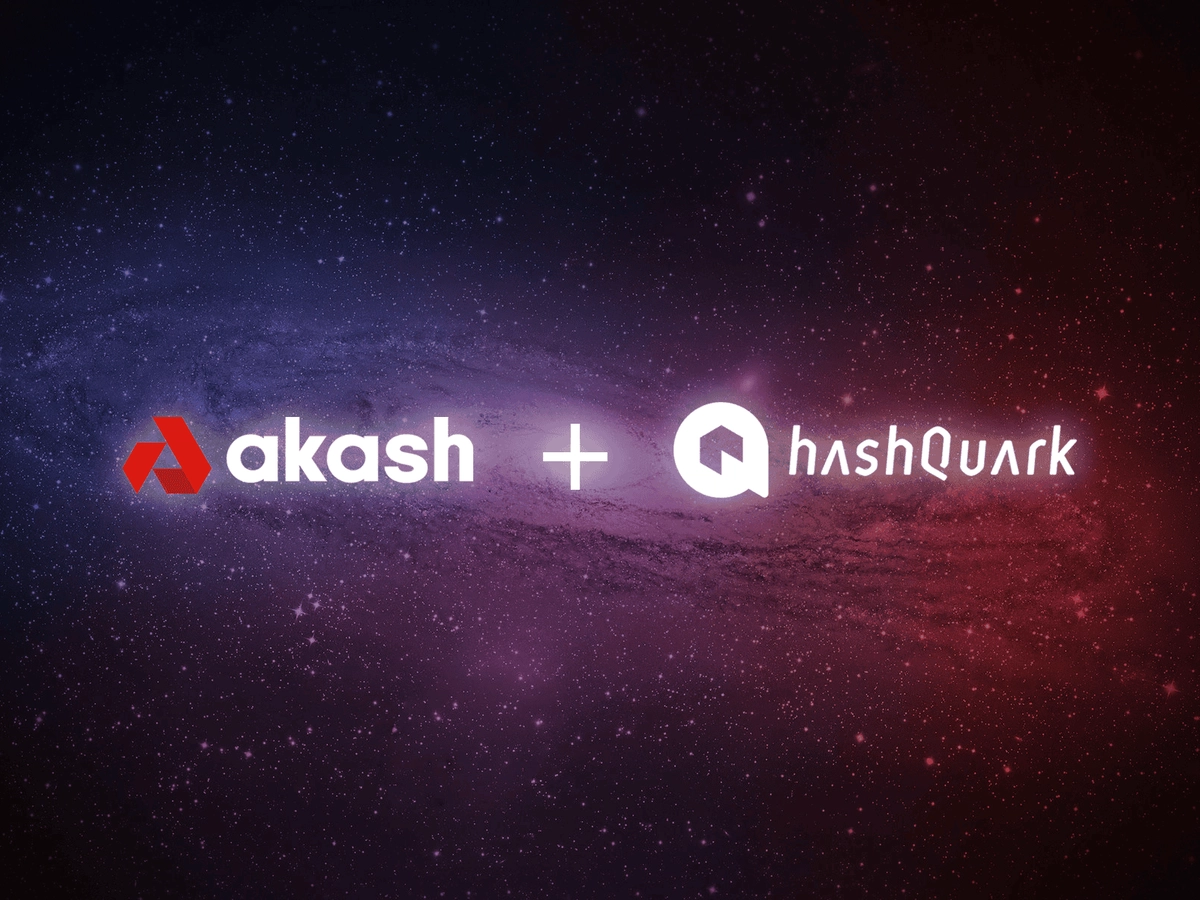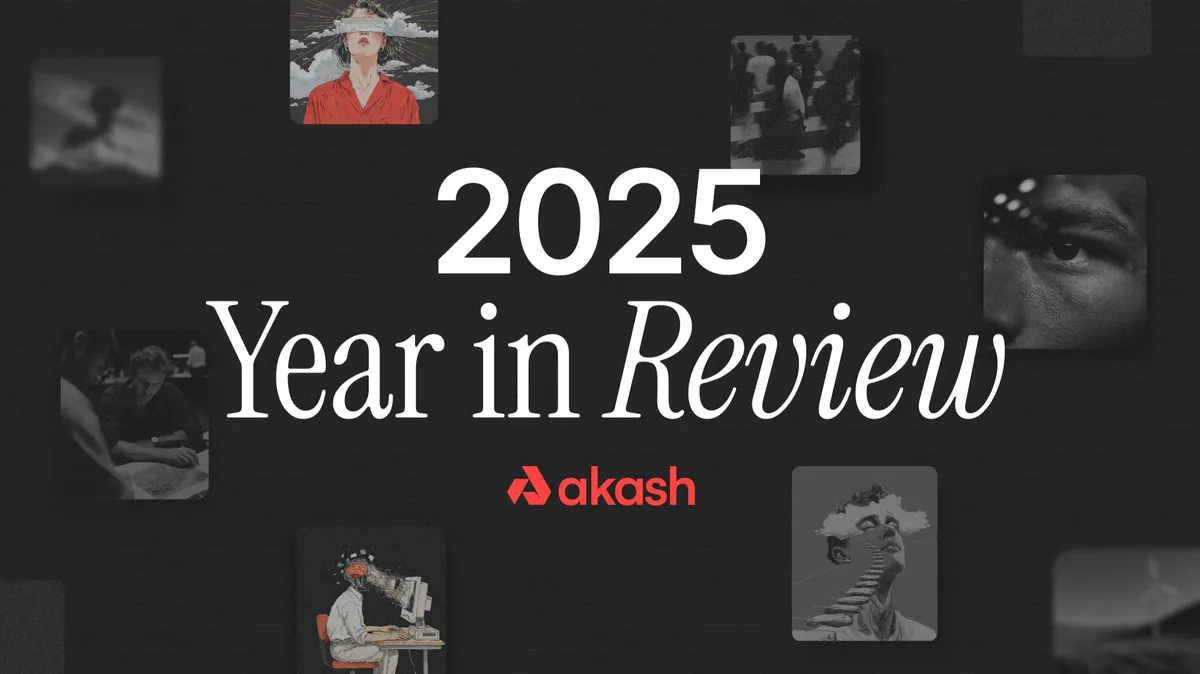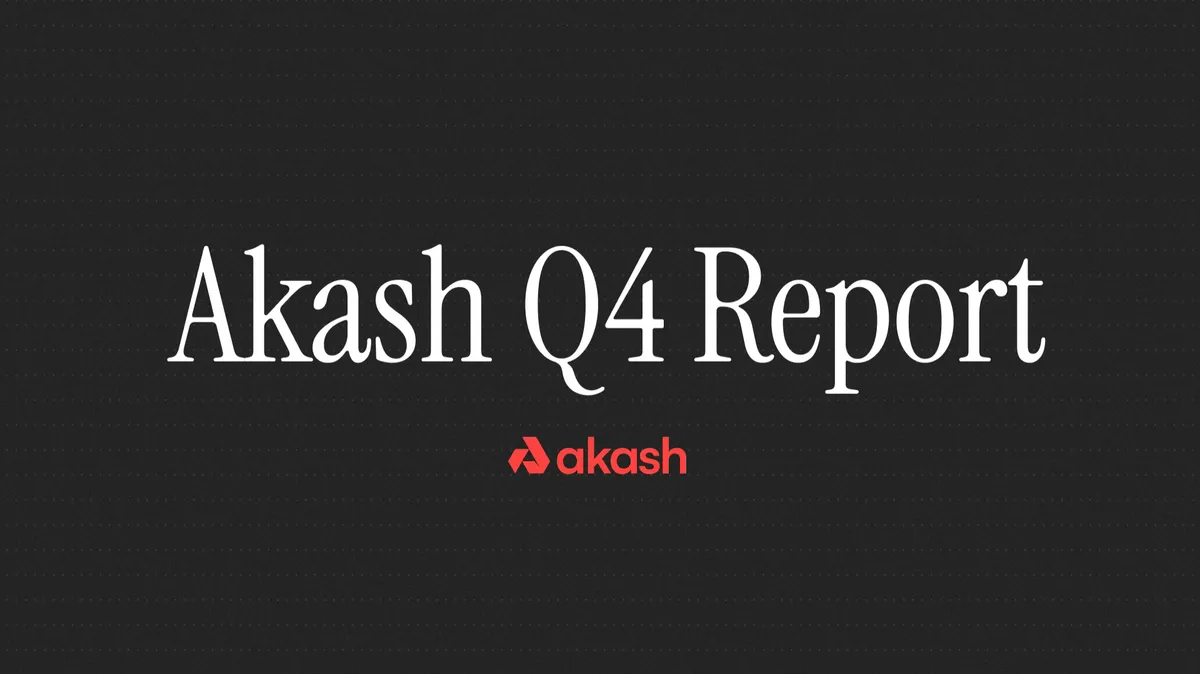
We’re excited to announce a partnership with HashQuark, the largest Asian staking company and one of the world’s largest validators.
Since 2018, HashQuark, a member of HashKey Group, has provided the most secure, stable, and convenient enterprise-level staking services, and is dedicated to supporting vital blockchain infrastructure and the safe operating of mainstream Proof of Stake (PoS) blockchains. Currently, HashQuark runs nodes for over 40 blockchain projects including Polkadot, Klaytn, Cosmos, Dfinity, and has partnered with the world’s leading crypto wallets, exchanges, and capital firms. HashQuark will also be joining Akash Network’s validator set.
Our partnership with Akash Network represents our belief and trust in their professional team and forward-looking plans. We are thrilled to work with Akash Network and become part of this awesome project, helping its network vastly expand while ensuring security, paving the way for a more enabling public blockchain ecology.
Leo Li, CEO of HashQuark.
We had the opportunity to connect with Leo Li, CEO of HashQuark, and a pioneer of the staking ecosystem, to get his take on supporting PoS blockchains and hear more about what they look for when partnering with new projects.
Interview with Leo Li, Chief Executive Officer at HashQuark
_____

HashQuark is one of the world’s largest validators—what did the beginnings of HashQuark look like, and how has it grown since then?
HashQuark was initially launched in late 2018 as a staking service provider, namely to offer attractive staking rewards for those who delegate their tokens to us. As the blockchain industry continues to thrive and our team grows, we began to serve enterprise-level clients and KOLs, apart from common users.
That’s when we recognized the value of the blockchain infrastructure and decided to develop ourselves into a professional and all-around infrastructure service provider, creating true value while safeguarding the security of proof-of-stake (PoS) backed blockchains by way of node operation.
We’ve joined several high-quality PoS-backed projects and partnered with many enterprises and institutions in terms of security, asset management, and trading. With the help of our extensive industry resources, we’ve developed a diverse array of businesses, including node operation, delegation service, node set-up guide, and dedicated tools and products for different projects.
HashQuark supports all mainstream Proof of Stake (PoS) blockchains. Why is supporting PoS blockchains important to the company versus Proof of Work (PoW)?
We’ve thought highly of the PoS blockchain even before our official launch for a few reasons:
1. We believe that blockchain will create a distributed business counterpart parallel to the physical one. However, for the moment it is widely accepted that most PoW blockchains do poorly in performance and are less friendly to common users; it’s undoubtedly a major barrier to mass adoption and the promotion of use cases in the commercial field. The PoS-like consensus mechanisms, by contrast, do better in all the above aspects.
2. PoS now represents the general trend in the world of blockchain, as evidenced by the launch of so many high-quality projects such as ETH2.0, Polkadot, Cardano, and Akash.
3. The staking economy still has a lot to discover and develop, and we’re excited to witness and grow with the promising industry as things are just beginning to take off. Staking, as a critical component of the DeFi system, will inevitably continue to develop with the prosperity of DeFi, and that’s also why we have always thought highly of its future.
HashQuark currently supports Eth 2.0, Binance, Polkadot, Cardano among other networks. How do you select what projects to partner with, and what attracted you to work with Akash Network?
There are three aspects we look at when evaluating a project:
1. Mainnet Launch: we prefer a PoS project that has launched to mainnet because it means it is technologically mature and that block producers and delegators can take part in the staking process.
2. DApps: we look to see if DApps are running on top of its distributed system. That’s partly because we believe that the staking economy means more than staking services alone. Decentralized applications help constitute real successful and scalable blockchain projects.
3. Community: Lastly, we look for a well-developed community. Consensus among the community is what we believe matters in the staking economy—or rather, in the blockchain industry.
We were amazed by the concept of Akash’s decentralized open-source cloud and recognized the significance and need for a DeCloud in the entire blockchain industry. Akash is lower-cost, more effective, and flexible, and HashQuark has expertise in blockchain infrastructure, a solid foundation for the decentralized cloud. We believe our partnership will help provide cloud services in a more decentralized manner.
What blockchain/crypto sectors or types of projects are you currently excited about, and why?
We are currently interested in the now popular sectors of DeFi and NFT projects, both of which are great applications of blockchain and have attracted some traditional institutions.
How do you envision blockchain changing the world?
We’ve seen an overwhelming digital/virtual tendency over our real, physical lives, especially after the year 2020. There’s no doubt that in a more digital, fiction-like world, identity is something not to miss, and only with a blockchain-based value Internet is there a real possibility of such a system.
A few years ago, the World Economic Forum predicted that by 2025, 10% of the world’s assets will be based on the blockchain. That’s also what we envision in the future of the world when it comes to blockchain.
If you had the opportunity to give advice to your younger self as you start venturing into the world of blockchain, what would it be?
Always have faith in the blockchain and Bitcoin.
How can people get started earning rewards/staking AKT today?
There are generally two ways: delegation and node operation. But for most common players with limited access to relevant resources and technical know-how, we suggest the former one.


